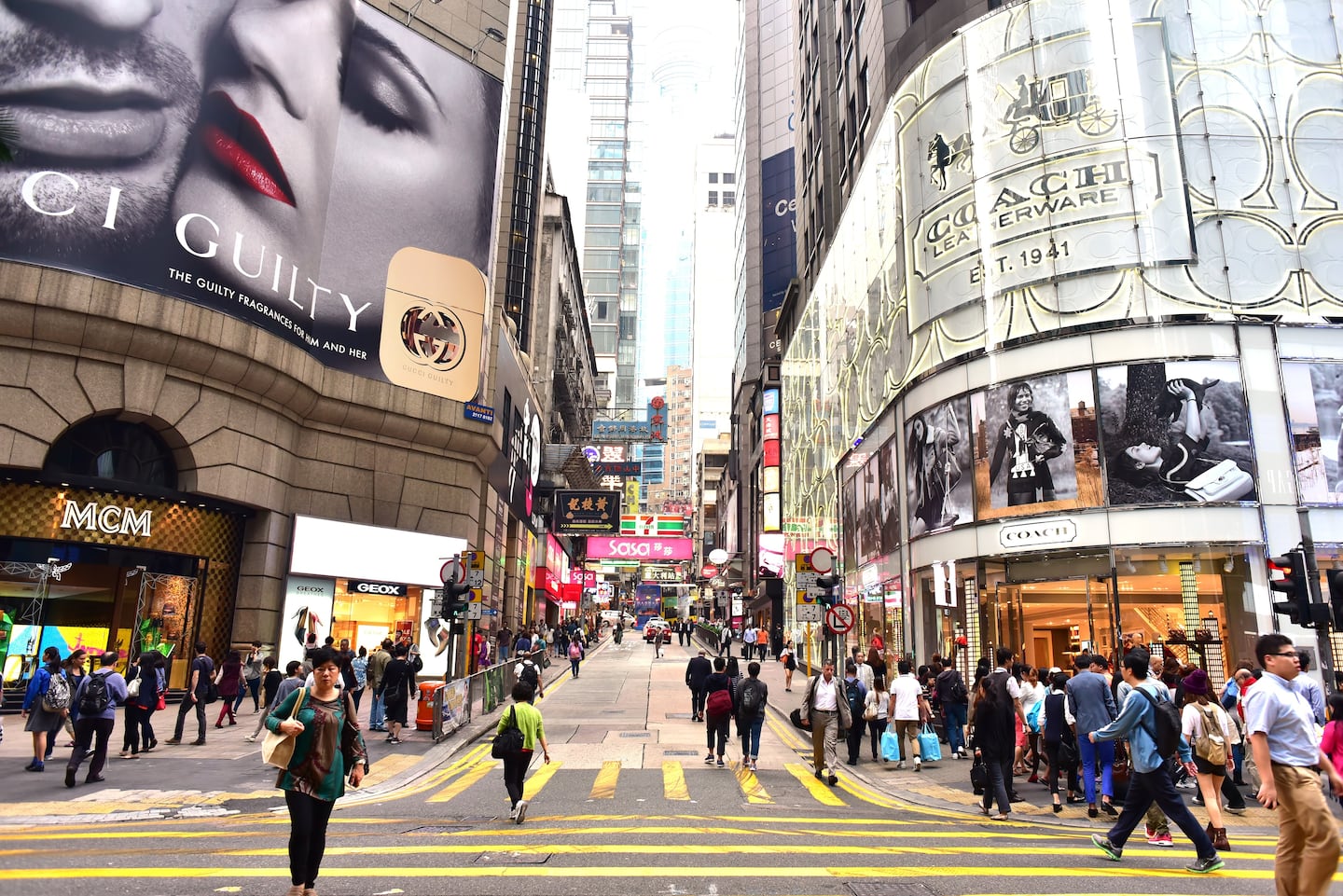
The Business of Fashion
Agenda-setting intelligence, analysis and advice for the global fashion community.

Agenda-setting intelligence, analysis and advice for the global fashion community.

Hong Kong’s retail sales plummeted 13.8 percent in March, the first back-to-back contraction in more than a year as stringent virus restrictions weighed heavily on the economy and crushed consumer spending.
The fall in sales value from a year earlier was worse than the median estimate of a 12.6 percent decline expected by economists in a survey, though it was less than the 14.6 percent drop in February. Sales volume fell 16.8 percent from a year ago, the Census and Statistics Department said Thursday, roughly in line with economist expectations.
The February-March period was the first time since the end of 2020-into-2021 that retail sales declined for two straight months, as the city imposed strict social curbs — including a ban on dining in restaurants after 6 p.m. and closing gyms and beauty salons — to contain a deadly Covid outbreak.
The full impact of those restrictions is also likely not captured in the data, as the retail sales data covers consumer spending on goods but not services such as catering, medical care and entertainment, which account for over 50 percent of total consumer spending.
ADVERTISEMENT
Things are now looking up for Hong Kong, which is accelerating plans to ease curbs by reopening beaches and swimming pools and extending dining in-hours, among other measures. A gauge of private sector activity also improved last month, adding to early signs of a rebound.
The government has started handing out consumption vouchers to help growth. A similar program last year helped boost monthly retail sales by double digits, and the handouts this time are likely to be more effective in driving retail growth, Annie Yau Tse, chairman of the Hong Kong Retail Management Association, said at a briefing Thursday.
“The fifth wave of outbreak has greatly suppressed people’s shopping sentiment,” said Yau Tse. “The shopping voucher was rolled out just as the fifth wave started to ease, resulting in the release of months of backed-up desire to shop.”
Most members of the association said their businesses picked up in April, with outlets selling health and beauty products, watches and jewellery, furniture and home appliances expecting growth of 20 percent to 60 percent, according to Yau Tse.
But the damage to the economy in the first quarter was still far deeper than many economists anticipated, suggesting a potentially lengthy road to recovery. The city’s gross domestic product contracted 4 percent in the first quarter, much worse than the median estimate of a 1.3 percent contraction in a Bloomberg survey. This week, DBS Group Holdings Ltd cut its 2022 growth forecast to 1.7 percent, citing global supply chain disruptions, the “dwindling pace” of the labour force and rising interest rates that will hamper investment recovery. United Overseas Bank Ltd cut its prediction to around 1.3 percent.
Adding pressure to the economy, the Hong Kong Monetary Authority raised its benchmark interest rate Thursday by 50 basis points to 1.25 percent, in line with the US Federal Reserve. Monetary policy in the city moves in lockstep with the Fed since the Hong Kong dollar is pegged to the US currency. However local banks kept their best lending rates unchanged, which will likely spur lending and borrowing even as the benchmark rate tightens.
By Krystal Chia
Learn more:
ADVERTISEMENT
Hong Kong Retail Sales Up 12.1%
The city’s April sales rose off a low comparative base following March’s 20.2 percent year-on-year surge, Inside Retail reports.
Though e-commerce reshaped retailing in the US and Europe even before the pandemic, a confluence of economic, financial and logistical circumstance kept the South American nation insulated from the trend until later.
This week’s round-up of global markets fashion business news also features Korean shopping app Ably, Kenya’s second-hand clothing trade and the EU’s bid to curb forced labour in Chinese cotton.
From Viviano Sue to Soshi Otsuki, a new generation of Tokyo-based designers are preparing to make their international breakthrough.
This week’s round-up of global markets fashion business news also features Latin American mall giants, Nigerian craft entrepreneurs and the mixed picture of China’s luxury market.